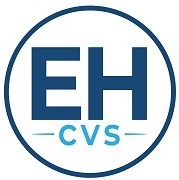Writing for WellbeingÂ’ Workshop this coming Monday 18 October from 4.30-5.20pm at the Ealing Cross building (very close to Ealing Council).

Writing for WellbeingÂ’ Workshop this coming Monday 18 October from 4.30-5.20pm at the Ealing Cross building (very close to Ealing Council).


This workshop is for small charities, community organisations and resident groups that provide services in Ealing Only.
We are excited to announce, A2Dominion and Clarion Futures have now gone live with Round 2.
The West Ealing Grants Programme is a three-year, £300K project, offering financial support to small charities, community organisations and resident groups that provide service in Ealing. These organisations will be able to apply for small grants of up to £5,000 to enhance the service they deliver to our customers in the local borough.
Below are the key dates:
Round 2:
Applications close: 12noon Thursday 11 November 2021
Outcomes will be made in mid-December 2021
REGISTER HERE : West Ealing Grants programme – Round 2 Tickets, Thu 21 Oct 2021 at 10:00 | Eventbrite
The West Ealing Grants Programme is a three-year, £300K project, offering financial support to small charities, community organisations and resident groups that provide service in Ealing. These organisations will be able to apply for small grants of up to £5,000 to enhance the service they deliver to our customers in the local borough.
How to apply
Applications must be submitted via the Clarion Futures online grants portal (Flexi-Grant). Applicants are required to register on the system before starting an application form. https://clarionfutures.flexigrant.com/
A summary of the programme, guidance notes and direct link to the portal can now also be found on Clarions website https://protect-eu.mimecast.com/s/tNviCRgKWfnm29vTNJqDb?domain=myclarionhousing.com
If you are interested in finding out more or would like to refer a community charity, organisation or residents’ group for potential funding, please contact Marisa.Fletcher-Patrick@a2dominion.co.uk  or Caroline.Wolff@a2dominion.co.uk
Below are the key dates:
Round 2:
Applications close: 12noon Thursday 11 November 2021
Outcomes will be made in mid-December 2021
As more people volunteer and causes become more popular, funding them has become a challenge. The pandemic has placed greater pressure on the community and voluntary sector, it has increased the needs of people at a time when budgets have become smaller.
Every project comes with a budget that requires fundraising, having the right tools, resources and technical knowledge is vital to aiding you on the journey to your financial target.
Taking place online via Zoom, this event has been designed to give the community and voluntary sector based in the London Borough of Ealing an overview on the benefits of accessing information on fundraising by using the Ealing4Fundraising portal. The Ealing4Fundraising portal was created to make it easy for organisations and community groups to identify funding, without having to wade through a mass of information much of which can be unconnected to their project.
Benefits to You:
– Become more informed about funding opportunities
– Be able to identify new and potential sources of funding with as little as three small steps
– Find funding opportunities that are linked to your organisation’s objectives, making it easy for you to meet their criteria
– Learn how to find information about your local area that can support and strengthen your bid
– Find out how to receive regular funding updates via email without having to complete a regular search
– Learn about funding from a wide range of funding agencies, local, national and European
– Discover how other organisations have managed to secure funding using the Ealing4fundraising portal
Ealing & Hounslow Community Voluntary Sector will be co-hosting this event with Ealing CouncilÂ’s Community Engagement Team, and special guest Timothy Crampton of Idox, who will take you through the portal showing you how to connect to funders that are more likely to fund your projects.
Join us for an hour at 10 am on Wednesday 27th October 2021– free to attend via Zoom.
REGISTER HERE :Ealing4Fundraising Workshop Tickets, Wed 27 Oct 2021 at 10:00 | Eventbrite
Adult mental health fared very badly during the pandemic. Until March 2020 one in 10 adults in England suffered from moderate to severe depression. That figure doubled to almost one in five by June 2021. Even before the pandemic, as many as 1 in 2 Londoners reported feeling more stressed than they felt they could handle. Record numbers reported feeling lonely.
And that’s where MindFood comes in.
We are the antidote to the mental health challenges faced by our communities
MindFood is a small mental health charity with a bold vision to be Ealing’s Natural Health Service for the mind. We offer food-growing, mindfulness and other nature-related activities both in person and online. And all for FREE!
Much of our programme is funded by Ealing Council’s
Community Connections Grant.
We invite you to come and learn about how our small team work together with participants to reconnect them with nature, improve their wellbeing, and equip them with the tools they need to tackle city life’s many pressures.
Below are some guidelines for writing an IT policy, designed for a small not-for-profit employer that is adhering to statutory minimum requirements. It does not constitute legal advice. As with all policies it should be consistent with your terms and conditions of employment as well as your culture and aspirations. There is no one-size-fits-all.
Download a version of these IT guidelines for writing an IT policy (Word, 73KB)
The purpose of an IT policy is to set out the parameters on how staff should use the technology that your charity provides them with in order to do their job. A clear policy will also help to raise awareness of the risks associated with using IT and can protect the charity from loss of data.
Charities will need to take a view on whether staff are permitted to use IT equipment for personal use (for example, accessing webmail or online shopping at lunchtimes). The policy needs to clarify acceptable and non-acceptable use and what will happen if the policy is breached.
As an employer you have the right to monitor work use of IT equipment provided you have a legitimate reason and that you tell staff that you might do this.
Download a version of these IT guidelines for writing an IT policy  (Word, 73KB)
Help us to improve this page – give us feedback.
